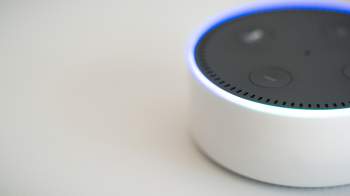Younger generation found to favour female smart assistants
Female voices have been shown to be more compelling and to engender more positive reaction than male voices for home assistant devices.
Last week at our inaugural Nonference event, Neuro-Insight and marketing agency Mindshare hosted their session titled 'Alexa or Alex? Our subconscious response to the gender of voice assistants'.
The full research revealed a positive bias towards female voices among younger people - those aged under 35 - and gives strong reasoning behind the female gendering of home assistant devices like Amazon's Alexa and Microsoft's Cortana.
It found that subjects of all ages and genders were 32 per cent more likely to react positively to female voices.
However, in under 35s, this figure was far more pronounced, rising to 103 per cent in being more approachable. Female voices were also shown to be 22 per cent more compelling for this group.
Heather Andrew, chief executive of Neuro-Insight, said: "The differences of response that we observed were clear and compelling.
"Although in the past, male voices may have had more authority, as evidenced by older people's reactions, it's apparent that this is no longer the case for the younger generation."
Read more about Neuro-Insight and Mindshare's Nonference session here.
Related content
How does Real_Living relate to neuroscience
Learn moreSnapchat's youth appeal 'to make it popular with advertisers'
Learn moreVoice technology: Rewriting the rules for brands
Learn moreAdvertising Week Europe - The Big Six Ideas
Learn more
Fast forward to 2030 with Futurescape
An in-depth exploration of the attitudes, innovations and media shifts that will shape the years ahead and redefine how we advertise by the turn of the decade


